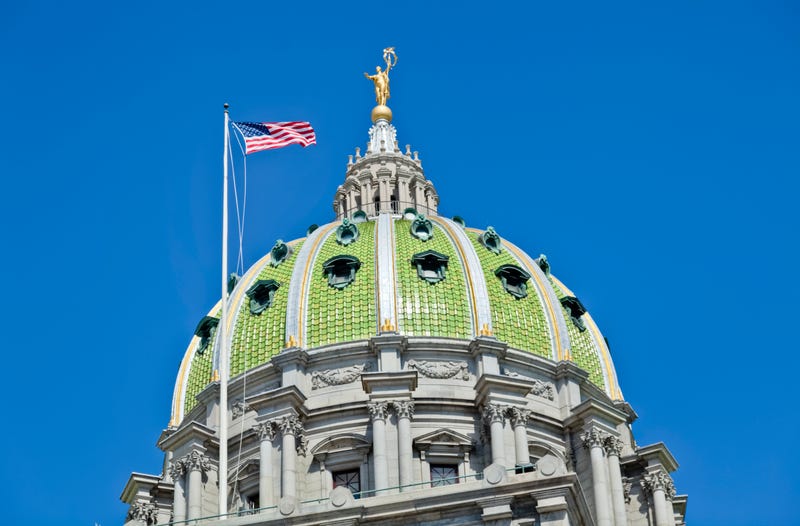
PHILADELPHIA (KYW Newsradio) — A major Commonwealth Court ruling could change the way Pennsylvania funds education. A court battle more than eight years old has culminated in a ruling declaring that Pennsylvania's system for funding education is unconstitutional.
A Commonwealth Court judge on Tuesday ruled that the way the state funds schools does not meet the education clause of the Pennsylvania Constitution, which says the legislature must provide for the maintenance and support of a “thorough and efficient system of education.”
“This is an earthquake. This is an extraordinary day for the future of Pennsylvania and for every child in Pennsylvania," said Dan Urevick-Ackelsberg of the Public Interest Law Center, who was among the attorneys representing the school districts that sued the state.
“This is a decisive, clear, and unequivocal victory for public schoolchildren across Pennsylvania," said Maura McInerney, the legal director of the Education Law Center.
This suit claimed that the way the state legislature funds education is inequitable and inadequate, which forces school districts to rely too much on property taxes to fund schools.
In total, counting state and local sources of funding, Pennsylvania ranks near the top of all states in terms of education spending. The issue plaintiffs in the case highlighted relates to the wide disparity of resources available to the richest and poorest districts in the state.
In a memorandum opinion Judge Renee Cohn Jubileer wrote that, as a result of disparities in state education, “students attending low wealth districts are being deprived of equal protection of law.”
Now the question is: What is the remedy?
Cohn Jubileer offered this guidance:
“Nothing in the foregoing opinion undermines the ability of the General Assembly to continue providing local control to school boards or infringes on any of the sister branches of government’s authority. Nor does it require reform to be entirely financial. The options for reform are virtually limitless.”
The judge’s ruling indicated more state funding was necessary, but left it to the governor and General Assembly to work out how much.
McInerney said the petitioners will be headed back to court if that doesn’t happen.
“We will be vigilant in ensuring that the general assembly is held accountable," she said.
Urevick-Ackelsberg said the remedy shouldn’t take years.
“I think we certainly expect that the first budget after this ruling should have a significant down payment on bringing the system into constitutional compliance,” said Urevick-Ackelsberg.
The suit was filed in 2014 by parents, advocacy groups and six school districts (William Penn, Panther Valley, Lancaster, Greater Johnstown, Wilkes-Barre and Shenandoah Valley), against the governor, secretary of education and leaders in the state Senate and House of Representatives.
In general, Democrats in those roles have been supportive of the lawsuit, despite being named among the defendants, and Republicans in the House and Senate have been the ones staging the defense in court. Democratic Gov. Josh Shapiro, as attorney general last May, filed a brief in support of the petitioners, saying it’s time for the General Assembly to step up.
A months-long trial began in late 2021 and concluded in March 2022.
The office of Rep. Joanna McClinton, D-Philadelphia, released a statement on behalf of the House Democratic Caucus on Tuesday:
“For too long, schools in our most underserved communities were shortchanged, and we failed to meet our moral and constitutional obligation to our students, communities, and our shared future. We can’t undo the years of insufficient funding, but as a result of this historic decision, the future is brighter for our students and our communities.”
When it comes to school funding, what comes next?
It's been widely believed that the losing side of this lawsuit would appeal the ruling to the Supreme Court of Pennsylvania. There is no word yet on whether that has happened yet.
If Republicans do, would the issue be put on hold or would all sides have to continue working on a new funding system?
Urevick-Ackelsberg wants the parties to keep working.
“If there is an appeal, we will do everything in our power to ensure that the ruling is not stayed and that they need to get to work right away, and it’s clear that they need to get to work right away," he said.
A final decision from the state Supreme Court probably wouldn’t come before this year’s state budget is due on July 1, said Urevick-Ackelsberg.
“I think that’s probably unlikely. But their obligation to actually fix the system starts now," he said. "We will work hard to ensure that obligation remains even while this case is on appeal.”
Urevick-Ackelsberg said he expected this year’s state budget would include a “significant down payment on bringing the system into constitutional compliance.”
Pennsylvania House Republican spokesman Jason Gottesman says the caucus is currently reviewing the decision.
Senate Majority Leader Joe Pittman, R-Indiana, said in a statement that his caucus’ commitment to public school students is “evidenced by a historic level of investment in public education included in the current 2022-23 and prior state budgets. Our system has always sought to support state and local taxpayers, whom we will continue to respect moving forward as we address all needs of the Commonwealth.”
“Yesterday’s Commonwealth Court decision is disappointing, but not surprising from a state judiciary that consistently identifies itself as a legislature to reach policy gains political allies cannot achieve in the General Assembly,” said House Republican Leader Bryan Cutler.
“Unfortunately, the problems existing in our public education system go well beyond funding. The only part of optimism in yesterday’s decision is the recognition that merely providing more money to the public school system is not the only available answer to fix a failing system.”


